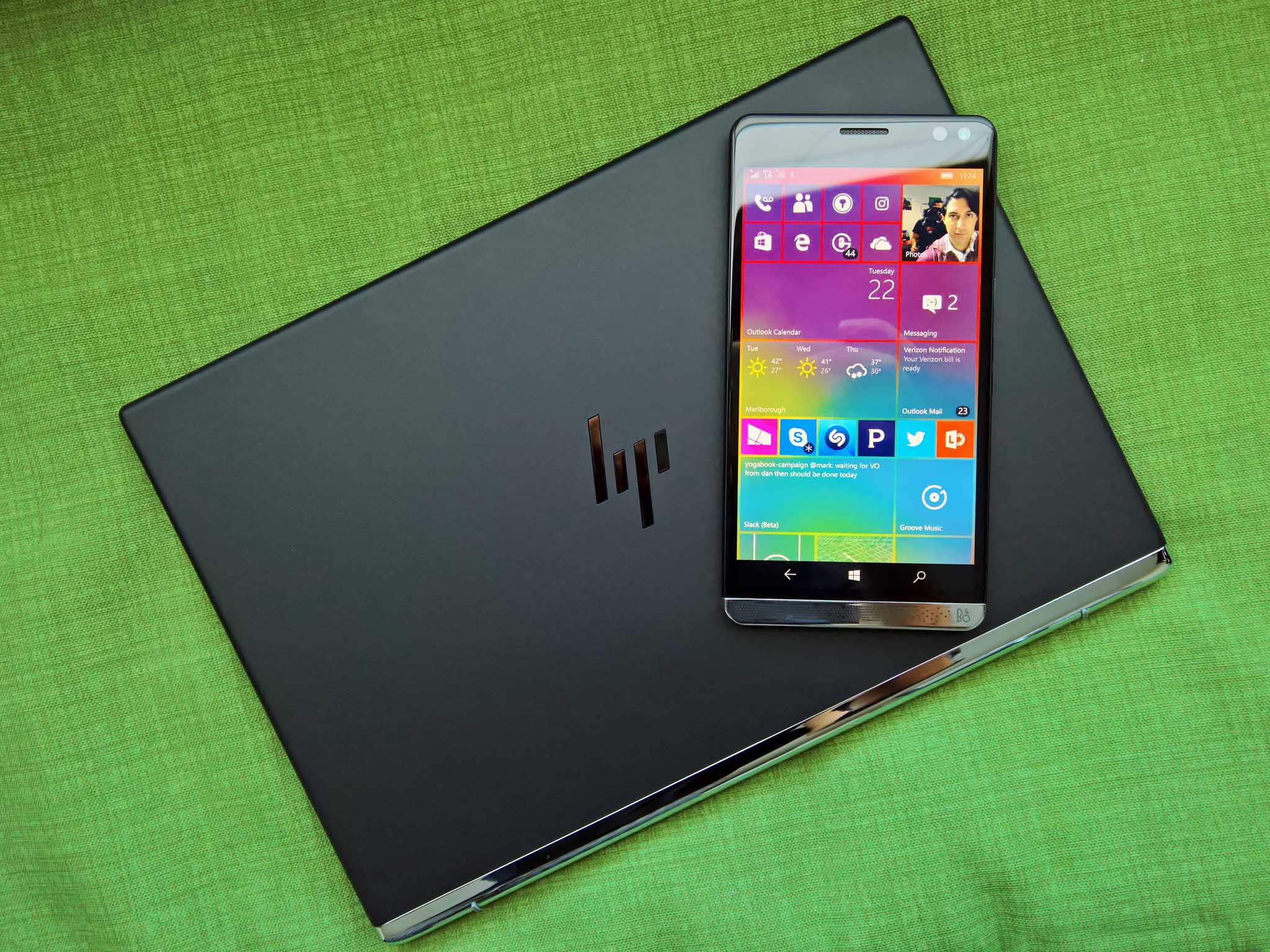Why HP remains committed to Windows 10 Mobile
With so many people saying Windows 10 Mobile is "dead," why does HP appear to remain committed to the platform?

It's odd that with Windows 10 Mobile being dead, HP continues to support and invest in the OS with its Elite x3 line of devices. HP is working on a second generation of the Elite x3 and is continuing to support and update its current Elite x3 with new firmware, up-to-date recovery files, app updates and more. But why? Many people are unable to fathom HP's commitment to Windows 10 Mobile, so we thought we'd try and help explain.
It's important to understand that Windows 10 Mobile is no longer a platform for consumers, it's a platform for enterprise. This is something Microsoft has said themselves. HP's entire Windows 10 Mobile play is based around the fact that Windows 10 Mobile is an enterprise platform, and with the Elite x3 (and future Elite x3s), the company built a device specifically for that enterprise market. HP actually went out and asked its enterprise customers what they wanted from a mobile productivity workhorse, and the end result was an Elite x3 running Windows 10 Mobile.
Windows 10 Mobile's Continuum lets you switch your phone into either a laptop or desktop by simply docking it. You can take your entire productivity device with you in your pocket, rather than in a bag or leaving it at work in the case of a desktop. I know many of you think Continuum is still a gimmick, but with CShell, that all changes. Microsoft will be bringing the familiar desktop experience to phones via Continuum with CShell, including windowed apps, true multitasking, and a whole lot more. You can see an early build of CShell in the video above.
New Device Categories
As a result of Continuum, HP believes that there's a middle ground between bring your own device (BYOD) and PC productivity. As the name of the Elite x3 implies, HP has built a 3-in-1 device rather than a 2-in-1. It's a phone, that can be that BYOD laptop, and can also be a desktop. In short, there's a new category of devices here with Windows 10 Mobile. HP's very own Michael Park, who oversaw the development of the Elite x3, explained that in an interview with us a few months ago:
"We saw very clearly about two years ago that there was an opportunity for us to step in, and that's when we looked at the different OS types … we knew that if we just created another Android phone, we wouldn't be able to keep up with the likes of an iOS or Samsung … We built from the ground up, really thinking about 'how do we bring to life a productivity experience for mobile workers where mobility is the first priority?' And that's the breadth of the concept."
And before you claim "but enterprise needs win32," HP is aware of this and has built apps that get around the lack-of-Win32-support-on-a phone issue. The HP Workspace app, which businesses can sign up for and customize, allows the Elite x3 to run Win32 apps through a virtual machine, connected via remote desktop. We demoed this app not too long ago, showcasing what it can do when the Elite x3 is connected to Continuum.
Even so, Android is now at that point in which it too has a Continuum experience, and when docked to a desktop or laptop can be extended to a desktop-like experience. The problem with Android, however, is that it isn't Windows. Enterprise markets like Windows, a lot. This is also why the Elite x3 is a Windows 10 Mobile device rather than an Android device.
"You have the fastest adoption of Windows 10 happening in the commercial and enterprise right now of any Windows OS that's ever been in the past, and the ability to transcend the backend and leverage those investments that commercial IT is making in active directory, Azure AD, EDP, and Windows Intune, seamlessly with virtually zero cost, is a beautiful "do you want fries with that?" play with Windows Mobile with Windows 10."
There are many benefits of going with a Windows-powered device over an Android or an iOS one for enterprise markets. That may not ring true for consumers, but you've got to remember that HP isn't building or maintaining the Elite x3 for the consumer market, everything HP is doing here is for the enterprise. It's clear that for consumers, Windows 10 Mobile is dead, at least for now. But for enterprise (and for "prosumers"), Windows 10 Mobile is very much alive.
All the latest news, reviews, and guides for Windows and Xbox diehards.
Hopefully, once Microsoft finally shows off CShell on Windows 10 Mobile in full, more of you will be able to understand why HP remains so committed to the platform. Perhaps we'll see Microsoft finally detail upcoming improvements to Windows 10 Mobile at its BUILD developer conference in May this year.
In the meantime, what do you think about HP's commitment to Windows 10 Mobile?

